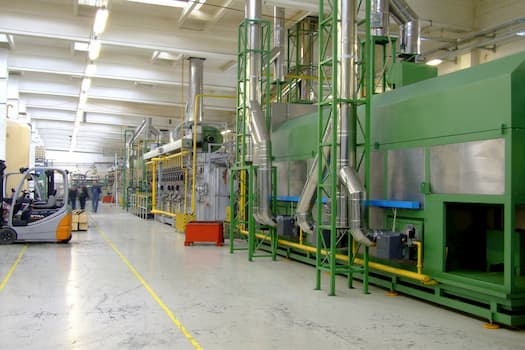Manufacturing industries in Ontario are currently looking for engineering professionals. If you excelled in your high school math and science courses, and you really like the idea of designing or solving complex problems using technical skills, you would love a career in engineering.
It’s a highly-respected profession, with many job opportunities, and you will always be working with cutting-edge technology and other highly skilled professionals. It’s a job for those who want to be challenged intellectually, while developing the products, processes, and systems of the future.
Training Required for Engineering Professionals
All engineers must complete a four-year engineering undergraduate degree after high school. In order to be registered with the province as a Professional Engineer, you also have to put in four years of supervised work experience, and write an ethical and legal exam (called the Professional Practice Exam). Engineers are held to a very high standard, because the public’s safety is in their hands (think of civil engineers who design huge bridges or skyscrapers).
University engineering degrees typically start with a general first year, which allows you to take all different types of courses to determine which stream you’re best suited for. Then you can specialize in your final three years to become a chemical, industrial, or mechanical engineer, among others.
Admission to engineering programs requires a high average in all of your Grade 12 high school science, math, and English courses, so you’ll want to ensure that you are studying hard, and keeping a close eye on your report card. It’s also a good idea to check out the admission requirements early on in high school so that you take all the prerequisite courses you need.
Chemical and Industrial Engineering Professionals
As an example, let’s take a closer look at two types of engineering professionals that are common within the manufacturing sector, and will be in demand over the next few decades. Both require a four-year university degree and often the professional designation (or P.Eng.), but the day-to-day work of these two professionals varies greatly.
Chemical Engineering Jobs in the Manufacturing Industry
Chemical engineers are responsible for the design, development, and oversight of chemical processes within a plant. They can also be involved in research labs within manufacturing plants, which provide a controlled environment to study the “why” behind certain processes.
If, for instance, a product on the assembly line isn’t forming as it should in a petroleum product plant, the chemical engineer would be called in to investigate why, research how to solve the problem, and quickly implement a solution.
It’s a fast-paced job, and requires thinking on your feet and being ready to solve complex problems.
Chemical engineering professionals can expect to make a yearly salary of between $46,000 and $120,000, depending on experience, advanced degrees, and the company you work for.
Industrial Engineering Jobs in the Manufacturing Industry
Industrial engineers are experts at optimizing how a manufacturing plant runs. The jobs that an industrial engineering professional would tackle include designing the plant’s layout, analyzing costs of production, and developing new manufacturing systems or processes.
Industrial engineering is really where technology meets business. If you excelled in math and science, but you’re also really interested in how businesses operate, make money, and improve, this career is definitely your speed. You can spec out new robots for a process you created, and you can also determine when that investment will be paid off. It’s a really cool combination of skills within manufacturing, and it sets you up early on to be promoted to management positions.
Industrial engineering professionals can expect to make a yearly salary of between $42,000 and $114,000. Obviously it’s a large range, but you can improve your prospects by obtaining a Master’s degree, being promoted, or earning pay raises once you are employed.
Engineering is a Challenging and Fulfilling Career
If you really enjoy math and science, and you know you want to pursue an undergraduate degree, engineering could lead to a truly fulfilling career. Within manufacturing you can design processes and products, as well as being a key player in the company helping to solve complex problems, all while working with the latest tech. It’s a well-paying career that ensures you can keep yourself challenged and engaged every single day.
External links are provided as informational resources only and are not necessarily endorsed by Ontario East.
References:
https://www.jobbank.gc.ca/marketreport/wages-occupation/2789/22437
https://www.jobbank.gc.ca/marketreport/wages-occupation/22437/22437
.png)



